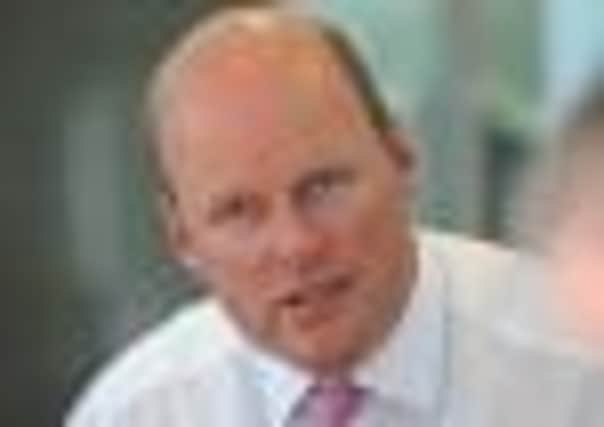RBS boss Stephen Hester ‘should keep bonus’


Sir Philip Hampton said Mr Hester’s pay, with a basic salary of £1.2 million a year and a £400,000-a-year pension contribution, was modest by industry standards.
He also said the challenge taken on by Mr Hester of rescuing the taxpayer-bailed RBS four years ago was one of the most difficult in the industry.
Advertisement
Hide AdAdvertisement
Hide Ad“We are looking at it [Mr Hester’s bonus] over a longer period of time,” Sir Philip said. “It’s not hyperbole to say it’s one of the most challenging jobs in world business.”
The chairman told the Parliamentary Commission on Banking Standards that the chief executive’s remuneration was “well below the average in world banking. Relative to other people doing these jobs, his pay has been modest”.
Mr Hester also mounted a robust defence of his performance, insisting he had managed to get the taxpayer “off the hook” for huge liabilities over the past four years.
When asked by MPs if he was concerned about picking up a bonus amid the Libor controversy, he said: “I think any bonus should be assessed on all the things I do well, or badly, in the round.”
Mr Hester chose last year to give up a bonus for 2011 amid intense political pressure, and has waived a payout for 2012 because of the computer systems meltdown that hit millions of RBS customers last summer.
The boardroom remuneration issue has been revived after the group was fined a total of £391m last week by the Financial Services Authority in Britain and its counterparts in the United States for the rigging of the key Libor rate at which banks lend to each other.
RBS has already said it is to claw back £300m of bonuses from the pool for 2012 to help pay the Libor fines. Sir Philip said: “We have not decided on our bonus pool yet. We are pretty close to it.”
The chairman was pressed by the commission why John Hourican, the Irish-born head of RBS’s Markets and International Banking arm, was leaving the group because of ultimate responsibility for the Libor affair, even though he had not direct participation, while Peter Nielsen, chief executive of markets, was being allowed to stay.
Advertisement
Hide AdAdvertisement
Hide AdWith Mr Nielsen sitting next to him at the commission, Sir Philip said: “He had no direct culpability. We [the RBS board] think a single point of accountability is what is necessary, not a series of assassinations.”
Mr Hampton appeared to distance himself from reports the bank may try to recover some bonuses from former RBS directors through clawbacks of payouts from previous years, to help pay the Libor fines. It had been suggested the likes of Fred Goodwin might be approached.
He said such moves were under consideration, but the amounts that might be recovered were likely to be minimal and might be construed as “a publicity stunt”.
The bank had no contractual rights to claw back bonuses paid out more than three years ago, he indicated, but said a decision on whether to ask for voluntary repayments would be made within two weeks.
“All of the people who have received these bonuses, they know what they’ve received and they know what they left behind. So in a sense there already is pressure on their goodwill and their good nature,” he added.